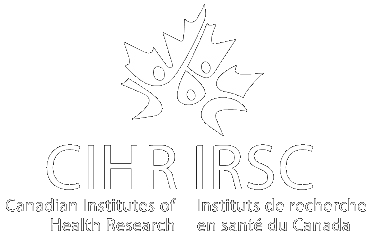The central guiding principle of the ACT Consortium is that all our activities will facilitate conducting and implementing the results from Canadian-led, high-quality, high-impact randomized controlled trials (RCTs) to improve health.
ACT will advance equitable access to trials for all Canadians –no matter where they live, inclusive of gender, ethnicity, and socioeconomic status– following the principles of equity, diversity, and inclusion in clinical trials such that the knowledge gained is applicable to all those affected (Accelerating Clinical Trials (act-aec.ca)).
Our commitment to equity aims to influence fair and adapted conditions for all Canadian population groups to participate and be represented in clinical trials in accurate ways beneficial for their health. We acknowledge that the multiple social and identity differences (related to ethnicity, language, age, gender identity, sexual condition and orientation, human abilities, legal status, rurality, geographic location, etc.) of Canadian population groups have influenced their unequal access to clinical trials and to the treatments related. The ACT Consortium aims to understand the systemic barriers preventing these groups from equitable access to clinical trials, to address those barriers with members of these groups, to identify facilitators, and to create with them methods to understand and address such inequities. Drawing on this vision, ACT promotes clinical trials able to integrate groups historically marginalized according to their priorities, languages and visions.
Our commitment to diversity starts by recognizing the multiple identity and social factors characterizing the Canadian population as a source of innovation. The ACT Consortium promotes diversity in three areas. 1) By facilitating the conditions to create and maintain teams and networks of researchers and trainees diverse with different levels of experience, knowledge and demographic levels. 2) By fostering participatory dialogues of diverse groups of patients with living experiences, clinicians, caregivers, knowledge users and researchers to create inclusive solutions. 3) By acknowledging, in the analysis, data collection and dissemination research phases, the diversity inherent to Canadian population groups. ACT will conduct gender-based analysis and intersectional approaches to acknowledge the power inequalities related to these diversities as a way to address them.
Our commitment to inclusion aims to ensure groups historically marginalized from clinical trials are represented in the innovations produced and can benefit from them. The ACT Consortium will be innovative not only in the results, but also in the methods and protocols to make sure different forms of knowledge –based in science and in experience– are equally valued. ACT will create all the conditions for its multiple collaborators to express their ideas, questions, and proposals in stimulating spaces free from harassment and discrimination.
Through our commitment to Indigeneity, ACT acknowledges the critical role of Indigenous people in better healthcare and research outcomes for all Canadians. We contribute to decolonize clinical trials and put them at the service of Indigenous population. With this purpose, ACT works with and for Indigenous people. We commit to research that values and includes the visions of Indigenous people and acknowledges the relevance of Indigenous elders, health promoters, and communities in health and wellbeing. When conducting research with First Peoples, ACT will respect The First Nations Principles of Ownership, Control, Access and Possession (OCAP) of research data, the National Inuit Strategy on Research, or the Principles of Ethical Métis Research.
VALUES:
Our EDI approach will be implemented under values of collaboration, cultural humility, continuous learning and adaptability.
